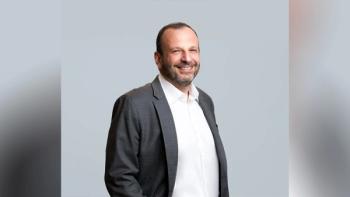
- Pharmaceutical Executive-11-01-2007
- Volume 0
- Issue 0
India vs. China
Will CROs continue to operate in India, or will Novartis' pullout send them farther East?
India has become an increasingly popular place to carry out clinical trials. Since Quintiles became the first international clinical research organization to set up in business there just seven years ago, the number of trials carried out in the country has ballooned—there are now about 100 CROs, both international and local. But will the recent spat between Novartis and the Indian courts have an effect on the country's popularity?
Sarah Houlton
At the heart of the problem is Indian patent law, which was changed in 2005 to allow drug substances, rather than only the processes used to make them, to be patented. While this has largely resulted in Big Pharma's being much more confident to carry out new drug research there, Novartis' patent application for Gleevec (imatinib) was rejected, causing the drugmaker to question its involvement in the country. As chief executive Daniel Vasella told the Financial Times, the ruling is not an incentive to invest in India.
There are certainly signs that it may be having some effect. Indian CRO Lambda reports that three big clinical trials it was already due to have started for Novartis are on hold, with a decision now set to be made by early next year. "This may be political, or the timing may be coincidental," says Michael Kracht, vice president and head of business development for Ahmedabad-based Lambda. "But this is not typical—we still see companies from all around the world coming to India."
There are good reasons why India has become so popular with Western pharma companies. Before the CROs started building up their business in India, local companies were already experienced in carrying out the bioequivalence trials necessary to support the generics industry. In this field, business is still booming—says Munyendi Ganesan, managing director of Micro Therapeutic Research Labs in Chennai; he points out that last year his company carried out 80 studies, this year it will be 150, and they hope to move into carrying out trials on new drugs too.
Trials are maybe 60 to 70 percent cheaper to run in India than they are in the United States or Europe. But Kracht's colleague, Associate Vice President Nitin Jain, explains that there's more to it than simply cost: India has a very high patient–doctor ratio, and there are more English-speaking doctors in India than in the United States. Add to that an excellent IT infrastructure and a huge patient population—the majority of whom are drug-naïve—and it becomes clear why the number of trials carried out in India is growing rapidly. According to consulting firm McKinsey, from 1991 to 2001, the value of clinical trials in India totaled about $85 million. It's now about $85 to $90 million a year and is projected to grow to at least $1 billion by 2010.
The speculation is that if Big Pharma decides the intellectual property situation is too much of a disincentive to running trials in India, the big winner will be China, which had a head start, as it started to enforce IP law earlier. According to Business Insights' recent report The CRO Market Outlook, the clinical research outsourcing market in China was worth $3.4 billion in 2006 and is projected to more than double between now and 2011, to $7.2 billion.
But the difficulty in doing business in China is much greater. In addition to the difficulties in communications that result from language differences, perhaps the country's biggest drawback is the time it takes to authorize a trial there. While it can take up to four months in India, it's rare for a trial to be authorized in China in any less than a year.
But will Novartis really carry out its threat to stop investing in India? Business Insight's Head of Healthcare Analysis Gaurav Misra thinks not. "In the latter half of 2004, Pfizer's patent for Viagra was declared null and void in China, and the same claims were made," he says. "If you look at how this has progressed, the IP laws were enforced in China in about 2000. In India, they were enforced in 2005. That's a five-year window. I think these are just glitches. I don't think it will happen, and neither do our external consultants. But we will wait and see."
However, it's not just the potential cost savings that mean pharma companies will keep carrying out trials there. With local regulators in both India and China now starting to insist that clinical trials be carried out on local populations before drugs can be licensed there, these are markets that pharma companies simply cannot ignore.
Sarah Houlton is Pharmaceutical Executive's global correspondent. She can be reached at
Articles in this issue
over 18 years ago
More Confidence—or Slower Development?over 18 years ago
FDA's Approvable Problemover 18 years ago
Step It Up: Branding Roundtableover 18 years ago
Rx Club Awards: Human Interestover 18 years ago
The Intelligence Diariesover 18 years ago
Reach KOLs Onlineover 18 years ago
Preemption Preview: Q&A with Mark Herrmann, Jones Dayover 18 years ago
Welcome Some Disruption in Your LifeNewsletter
Lead with insight with the Pharmaceutical Executive newsletter, featuring strategic analysis, leadership trends, and market intelligence for biopharma decision-makers.




